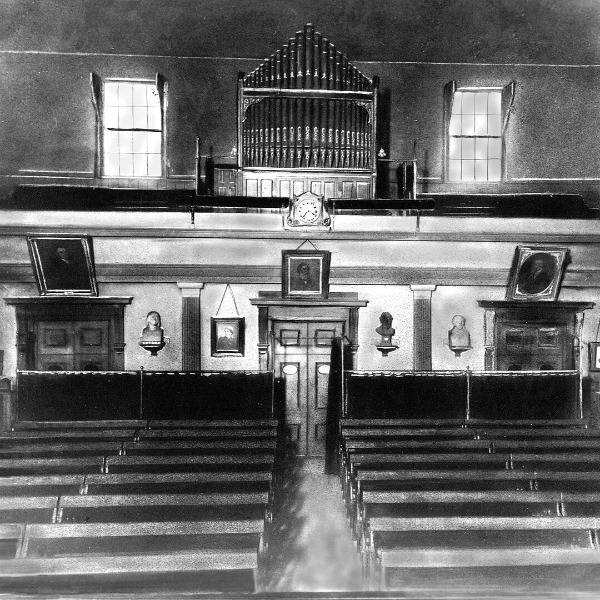I used to try very hard to be a believer. I wanted to believe there was a tooth fairy, that father Christmas really was a down-the-chimney mystery, that there were fairies at the bottom of the garden and that adults told the truth, but I never managed it. I must have been a tiresome child with whom to deal, because I argued so much. I'm told that I perfected the extremely infuriating use of the word 'why' before I learned to say 'shan't!' and I have a vivid memory of being stingingly smacked at infant school because, when a teacher told me that 'Jesus would cry if I was naughty', I asked how he would know if I was naughty. And when she told me it was because he watched all of us all the time, I remarked that he must be very rude if he watched people in the lavatory and anyway, I'd see him watching if he did, and kick him for it. (That was what we'd been told to do if any of the little boys in our playground came spying on us in the lavs, I thought she'd understand that. But she didn't. . . .)
I rather think the belief business finally bit the dust for me after that experience at age five. I was labelled as a troublemaker from them on; because the walloping made me so angry, I told her there wasn't any Jesus anyway and she'd made it all up just like they'd made it up about Father Christmas.
I don't for a moment think that I was an unusual child. I think the majority of children are natural sceptics. Watch them watching conjurors and you'll se the brightest of them trying to look under the silk scarves and boxes and other tricksy bits to see how its done. It takes a very deft magician indeed to really fool children; that's why the successful ones are those who make jokes and allow the children to laugh. They forgive the pretence of magic in exchange for the fun.
The trouble is that all these children go on to be bullied into irrational belief. It used to amaze me, as I got older and reached the level of school where they taught us physics and chemistry that the selfsame teachers who taught us the rules of scientific evidence, of the way experiments had to be repeatable to be true; of the way mathematics provided incontrovertible evidence of so many of the laws of nature, could stand in daily school prayers with hands folded and eyes closed, praying to a supernatural totally unproven being. Weird or what? Even weirder was the way they too were enraged and punitive if a pupil said that Darwin had proved that the Bible was nonsense.
The thing I found most difficult, I have to say, was feeling such an outsider. All the other people in my form were believers, swallowing grown up duplicity in large lumps, reading newspaper horoscopes eagerly, telling fortunes with tarot cards and such like and it was lonely thinking differently. So I used to pretend to believe in the same things they did, until a Walt Whitman poem encountered in an English class this time rather than in good old science, brought me up short again. In Song of Myself he says - ' I think I could turn and live with animals. They are so placid and self-contained. They do not bow down and worship one of their own kind -'
That one really did get to me. It not only confirmed my disbelief in supernatural gods (what was Jesus but a man, after all?) it also made me a Republican. But that's another story. Anyway, after that poem came into my life, I stopped trying to be Humpty Dumpty who could, Lewis Carroll said, believe two impossible things before breakfast, and settled for being the form outsider. It might be lonely, but it wasn't too bad. After all, Walt Whitman sort of agreed with me . . . .
As time went on, and I left school behind me to get a real education, borrowing the likes of Thmas Paine and John Locke and Thomas Hobbes, I at last discovered that there were other real live people and not just dead poets and philosophers who thought like me, and that I wasn't a weirdo after all. From then on, the struggle to be a believer disappeared into the other horrors of childhood memories, there to cease to be of any trouble at all. I was a real live grown up at last and refusal to share others' illusions/delusions no longer marked me out as weird at best, despicable at worst.
I offer this autobiographical fragment not as a bit of self-aggrandisement, but as a plea for the children who come after us into the next century of rationalism. How many more have to be bullied, teased, coerced, jeered into religious attitudes before we do something effective about it? I know there have been sporadic attempts to remove religious indoctrination from the curriculae of our schools, but that is all they have been. Sporadic. If at this stage of the history of the Rationalist Press Association we can promise ourselves that we'll treat the natural scepticism of young minds more justly in the future indeed we will have an anniversary well celebrated.

